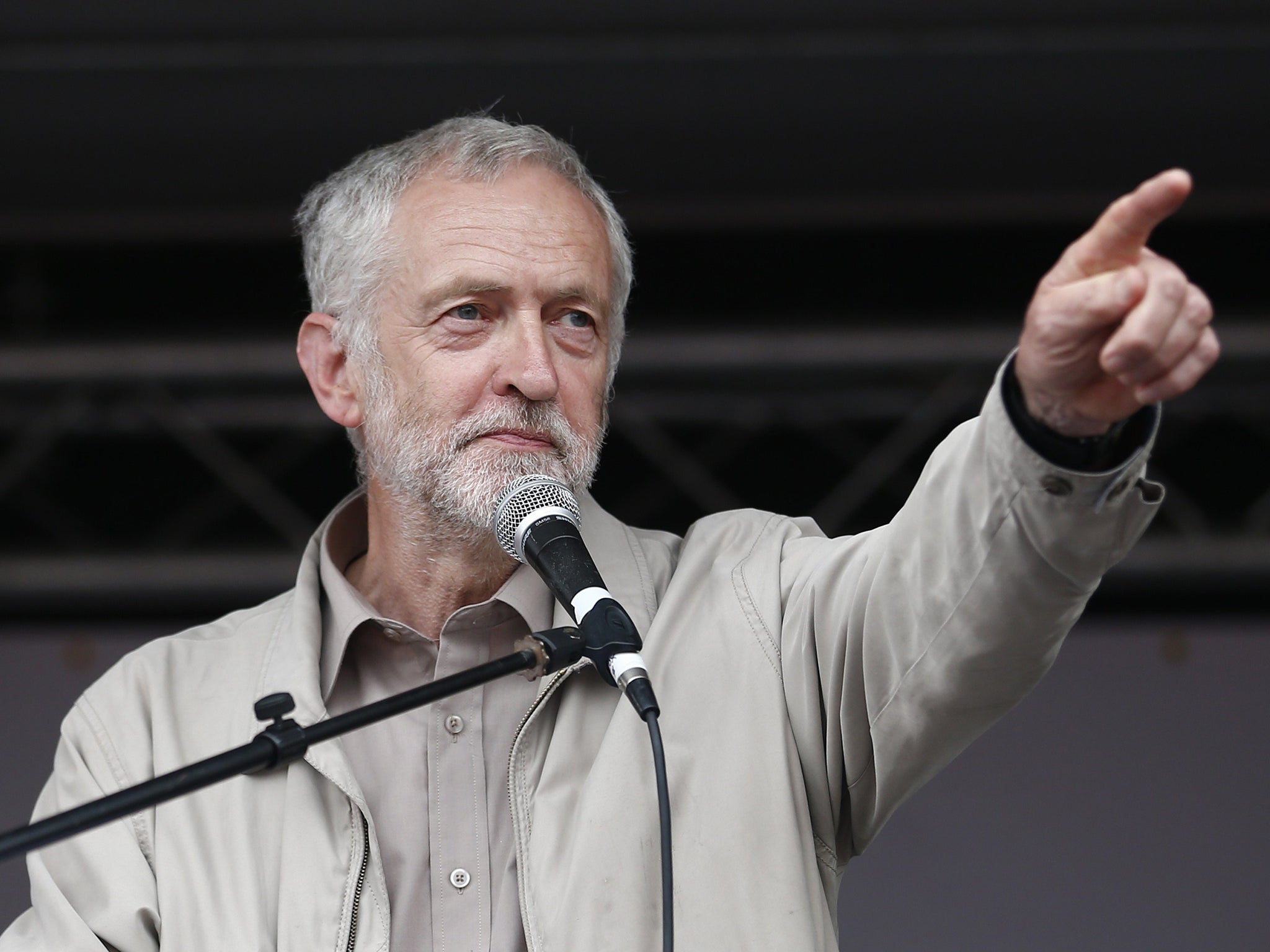Andy McSmith's Diary: Wasn’t Jeremy Corbyn supposed to be the plucky left-wing loser?
The Labour party leader nominee is starting to get more popular than many of his colleagues were hoping

When certain Labour MPs nominated Jeremy Corbyn to be the party’s next leader – ostensibly to “ensure a broad debate” – it was in the confident expectation that he would lose, and lose very heavily.
However, the early signs are that Corbyn has not read that script. Not only is he the one who gets the loudest cheers from party audiences at hustings when he repeats the old hymns of glory from the 1980s, but analysis by the social data intelligence company Talkwalker shows that Corbyn is getting vastly more mentions on social media than the other three candidates combined, and the mentions he gets are more likely to be positive than any other candidate’s.
In the past week, his name cropped up 245,500 times on social media and Talkwalker reckons that 30 per cent of the comments he received were “positive” and 23 per cent “negative”.
Each of the other three candidates received more negative than positive comments, and they logged a combined total of 150,600 mentions between them. Andy Burnham was the one with the highest proportion of negatives.
Suppose – just suppose – Corbyn pulled off the upset of the decade, and won. He would be the most left-wing leader Labour has ever had, with the possible exception of George Lansbury, who opposed rearmament or sanctions against the Fascists and Nazis on religious grounds. At 66, Corbyn would be the oldest leader the Labour Party had elected since Michael Foot, who was a few months older and not as far out on the left. And having never held ministerial office of any kind, nor been a shadow minister or held any position in the national party other than that of a backbench MP, Corbyn would be the most inexperienced leader ever chosen by a potential party of government.
If that were to happen, some of those who nominated him might start to feel that they had been a little unwise.
Champion’s a brave loser
Sarah Champion, who became Labour MP for Rotherham after Denis MacShane landed in trouble over his expenses, has won the respect of her peers.
When MPs were electing the chairs of Commons committees last week, the Labour whips were determined that the chairmanship of the Backbench Business Committee, which plays a major part in deciding which topics MPs should debate, should go to the Gateshead MP, Ian Mearns.
After Champion announced she was going to run against him, she was hauled in twice and warned that it could affect her chances of promotion if she did not pull out. She soldiered on. Despite the helping hand of the whips, Mearns won narrowly, 283-261.
Too edgy for Mandelson
“The city of Manchester is becoming the most exciting, edgy place to be around in England,” said Peter Mandelson recently.
He was right: Manchester is so exciting and edgy that the poet and playwright Lemn Sissay, who grew up in care, has been elected Chancellor of Manchester University, beating Lord Mandelson into third place in a field of three.
Immigration in reverse
Given how immigration dominates today’s politics, it is interesting to note that a century ago, the government had to defend itself against an accusation that it was letting foreign nationals go abroad on business trips, when it should be forcing them to stay in the UK. “No such permits are granted to enemy aliens,” the Home Secretary, Sir John Simon, told the Commons on 23 June 1915, though he admitted: “In proper cases and after full inquiry such a permit is sometimes granted to an alien of allied or neutral nationality.”
Join our commenting forum
Join thought-provoking conversations, follow other Independent readers and see their replies
Comments
Bookmark popover
Removed from bookmarks